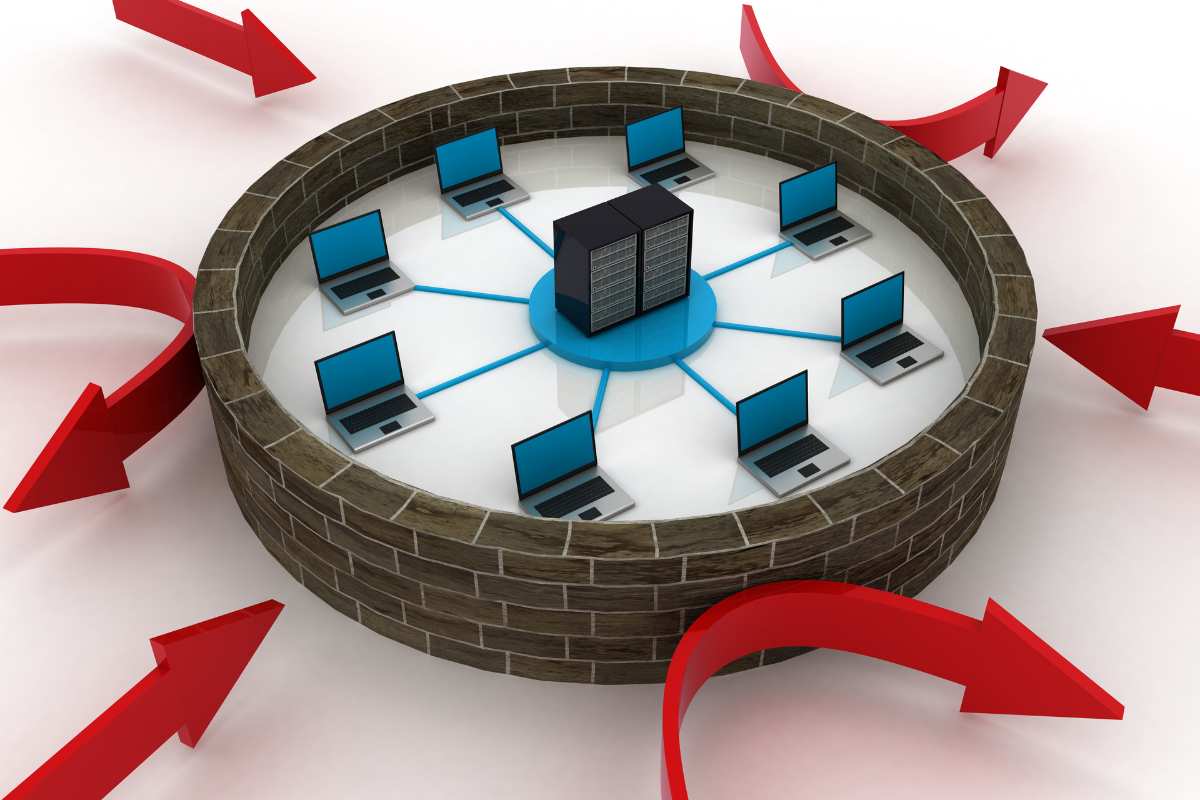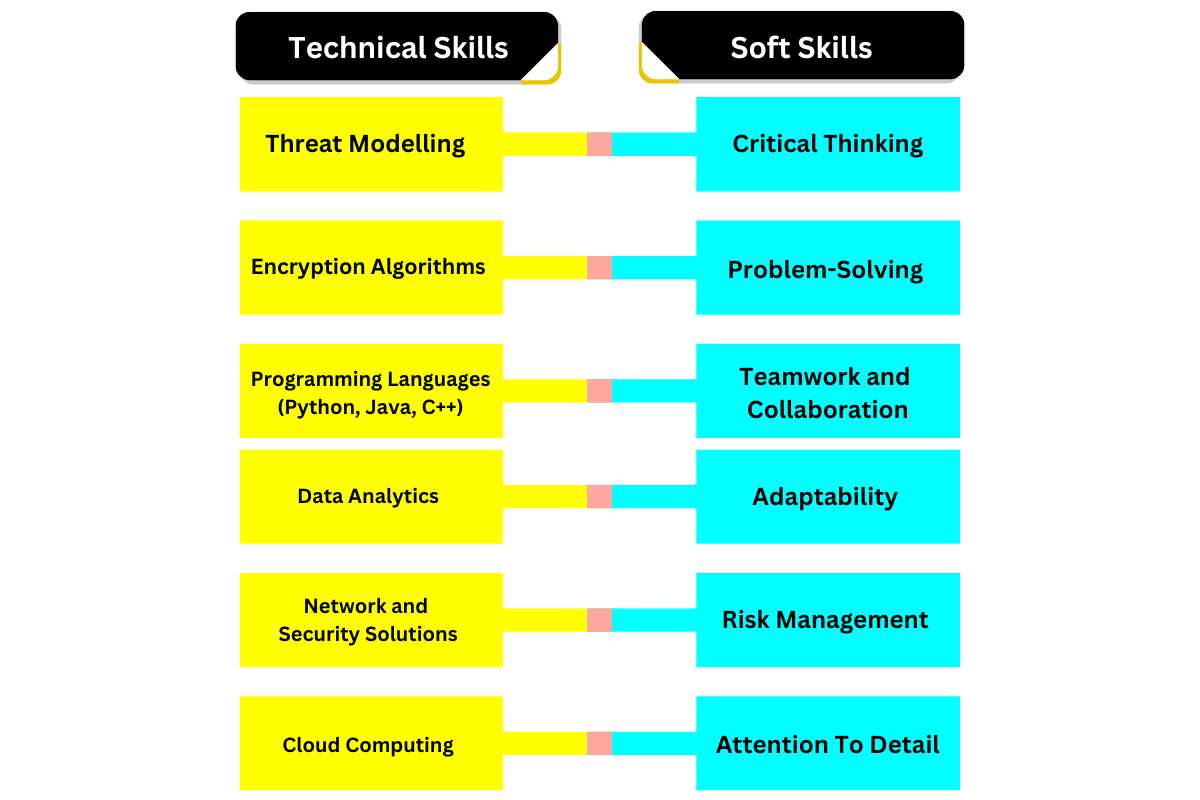The modern-day world is reliant on technology. Certainly, technology has advanced immensely, but everything comes at a cost. The negative aspect of it is the cyber threats. Protecting data and confidential information has become challenging for companies. The risk factor for data and security breaches is at a high level. These breaches can range from high-level firewall hacks to low-level email spoofing’s. Regardless of the levels, the damage caused due to these cyber threats can be dreadful. So, it is important to be updated and protected with unbreakable or strong firewalls.
But who is responsible for handling the tasks involving the protection of the database? A cybersecurity analyst must identify possible data breaches.
In this article, we will discuss more about them, their significant role in cybersecurity, and their job outlook:
What does Cybersecurity Mean?
Cybersecurity is the practice of defending servers, networks, and software from cyber or digital threats that jeopardize the company’s reputation. These attacks aim at retrieving and destroying sensitive information and money extortion. Implementing cybersecurity practices is very challenging. They follow a structured process. The process involves identifying the source of the problem, thoroughly examining the malware, and finally, taking preventive measures to find an accurate solution. Cybersecurity companies offer some effective plans and tools to prevent anomalies.
What is a Cybersecurity Analyst?

A cybersecurity analyst is a professional in the specialized field of IT and networks. Their main task is to interpret possible cyber threats and protect an organization’s confidential information. Their work extends to safeguarding the firewall and using software against cyber threats. They constantly monitor and intercept foreseeable breaches. Devising protocols that would overcome the breaches and regular testing of the firewall systems are some of the important responsibilities.
Some Important Cyber Threats
- Phishing: This is the most common cyber-attack. The hacker, in this case, known as a phisher sends a fake email or an sms pretending to be coming from a trusted source. These messages contain links to scam websites that might put the whole company’s information at risk. Phishers also use this method to install malware that disrupts the functioning of a company.
- Ransomware: As the name suggests, this is one of the most dangerous cyber threats. Hackers, through phishing emails, install malware in the company’s systems. Once installed, they will have access to all the company’s confidential and sensitive information. They demand money in exchange for the decryption key to access the firewall.
- Email Spoofing: Email spoofing seems like a petty cyber threat but can cause immense damage to an organization. Hackers trick users by making them believe that the emails they receive are from reputed and a legitimate source. They do this by forging the sender’s address of a legitimate company. They try to retrieve sensitive information like bank credentials and credit card details from the users.
Responsibilities of a Cybersecurity Analyst

Cybersecurity analysts play an important role in safeguarding the company’s network and firewall systems from security breaches. They are tasked with detecting and tackling cyber threats to ensure a smooth flow of operations in a company.
Some of the key responsibilities include:
- Hackers try to break into the system of a company through various cyber threat activities. To achieve that, they install malware by sending links to the users. The analyst must investigate the source of the malicious software, the amount of damage caused to the company, and possible damage outcomes.
- The analysts use Intrusion Detection Systems (IDS) to check for unknown breach attempts and use other tools to detect them.
- They develop protocols and other security procedures and constantly test them to build strong firewalls to obstruct threats.
- Whenever such challenging scenarios occur, cybersecurity analysts act swiftly to take accurate incident response methods.
- They are professionals in ethical hacking and are responsible for writing codes that will defend against any threats that would put the business of a company at risk.
- Analysts collaborate with the IT teams and stakeholders to devise efficient security plans and strategies that will meet the company’s requirements based on confidentiality.
- Guide the team on how to identify phishing or spoof emails.
To ensure hassle-free functions in a company, it is crucial to install strong antivirus software to protect from possible security breaches. Some profound cybersecurity companies are offering high-tech antivirus software.
They are:
- CrowdStrike
- Fortinet
- Cisco
- Palo Alto
- McAfee
Important Skills Required for Cybersecurity Analysts

The role of a cybersecurity analyst in the tech field is crucial in safeguarding the data and confidential information of a company. Certainly, to handle the company’s security, they require some key skills.
These Include:

How To Become A Cybersecurity Professional?
If you are planning to opt for a career in technology and have an immense passion driven towards coding, then this is the best choice for a mainstream career.
To start with, opt out of a science stream that includes computer science as a mainstream subject. The next two steps involve holding a bachelor’s and a master’s degree in computer science engineering. Pursuing certification courses like CompTIA Security+, CISSP, CEH, and mastering programming languages is crucial as it helps to develop your skills and showcase major growth in your career. Along with this, actively being part of projects and work experience helps to build your technical and analytical skills in coding.
Job Outlook And Salary
The field of cybersecurity is growing at a fast pace, and there is a significant increase in the need for cybersecurity practices. Cyber threats put the confidential data and profits of a company at risk. A cybersecurity analyst is given the main responsibility of safeguarding the firewall, hardware, and other technological aspects of the company. There is a significant rise in job opportunities in this field. There was a growth of 11% in 2024 and is expected to grow by 20% in 2026.
The salary depends on the experience in the field of cybersecurity. The average annual salary of a cybersecurity analyst is $110,040 per year. For rookie-level analysts, the annual salary will be $89,000, while experienced professionals earn up to $150,000 annually.






